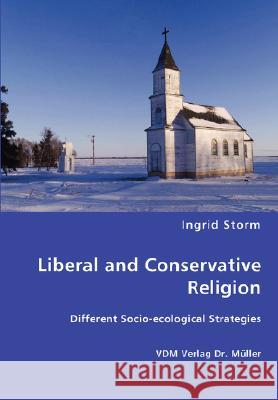Liberal and Conservative Religion » książka
Liberal and Conservative Religion
ISBN-13: 9783836463096 / Angielski / Miękka / 2008 / 148 str.
In evolutionary theory, the existence of religion has been explained as an adaptive behavioral strategy. This theory can also be used to account for the differences between religious groups. Unique data collected using the Experience Sampling Method (ESM), where participants report their behaviors and experiences on a moment-by moment basis were used to examine differences between liberal and conservative Protestant school students in the United States. The results show that conservative Protestant youth are generally more satisfied, family-oriented and sociable than liberal Protestant youth, but also more dependent on their social environment, which is reflected in a deterioration of their mood when they are alone. Using an independent set of data, linguistic analysis of sermons and mission statements show that liberal churches refer more to individualism, diversity and nurturance, whereas conservative churches focus more on authoritarianism, unity and obedience. The numerous differences between conservative and liberal Protestant denominations suggest that they cannot be ranked along a single continuum of religiosity from "weak" to "strong", nor that one is more universally adaptive than the other. Instead they appear to be qualitatively different socio-ecological strategies, both adaptive in a multiple-niche environment.











